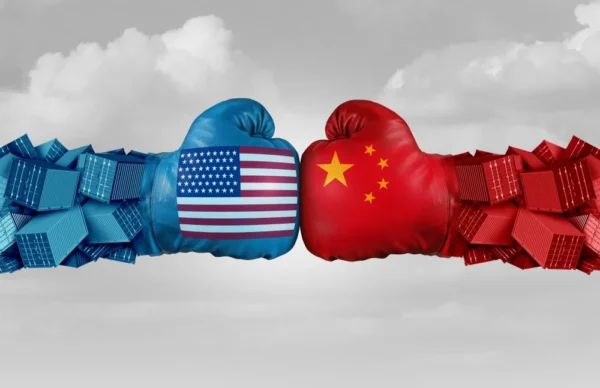In a sharp escalation of trade tensions between the world’s two largest economies, China has announced a 34% tariff on all imports from the United States, effective April 10, 2025.
The move comes in direct retaliation to President Donald Trump’s earlier decision to impose matching tariffs on Chinese goods.
The Chinese Ministry of Commerce issued a strongly worded statement Friday morning, calling the U.S. tariffs “a reckless and unilateral action that undermines global trade order.” China’s response, it added, is “a necessary countermeasure to safeguard national economic interests.”
What’s at Stake
This tit-for-tat tariff war has already begun rattling global markets. U.S. stock indices plunged Friday afternoon, with the Dow dropping over 800 points and the Nasdaq posting its steepest single-day decline in nearly a year.
Industries likely to feel the brunt of China’s tariffs include:
-
Agriculture: American soybeans, corn, and pork exports are once again in the crosshairs.
-
Technology: Semiconductors and high-end tech equipment may face stiffer competition from Asian alternatives.
-
Automotive: U.S. car manufacturers, already struggling with supply chain challenges, are bracing for added pressure.
Fed Chair Powell Weighs In
Federal Reserve Chair Jerome Powell addressed the economic fallout during a press briefing, stating, “While we are closely monitoring the evolving trade situation, we are not in a rush to adjust interest rates. Our priority remains inflation stability and employment strength.”
Powell’s comments poured cold water on market hopes for an emergency rate cut to offset potential economic damage.
President Trump, on the other hand, continued to push for rate cuts on social media, accusing the Fed of being “asleep at the wheel.”
What It Means
The re-ignition of the U.S.-China trade war could have far-reaching consequences:
-
Global Supply Chains: Many multinational firms may accelerate efforts to diversify away from China and the U.S., pushing manufacturing into Southeast Asia, Latin America, or Africa.
-
Inflation Risks: Tariffs may drive up costs for raw materials and finished goods, impacting consumers in both countries.
-
Recession Concerns: Prolonged uncertainty could chill investment and drag down global growth.
“This is not just a spat—it’s economic warfare,” said Dr. Lena Wu, a senior economist at the Asia Global Institute. “Both countries are testing the limits of economic resilience, and the world is caught in the crossfire.”
What’s Next?
With neither side showing signs of backing down, economists warn that further retaliatory measures could be on the horizon.
Trade talks, once hopeful, have stalled, and both nations appear to be preparing for a long-term standoff.
Investors, business leaders, and consumers now watch with bated breath: will cooler heads prevail, or is the global economy headed for another bruising year?
Also Read
